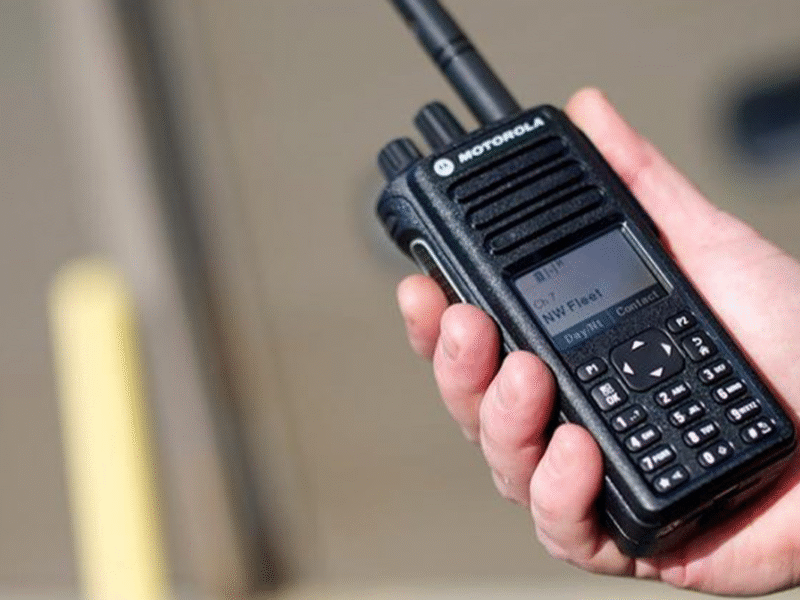With the rise of AI, cybercriminals are perfecting their tactics to drain financial accounts. Unfortunately, you may become more vulnerable to these attacks if you’re not on top of your cybersecurity, and these attacks can have a hefty price tag. According to Statista, the average cost of a data breach in Canada was over $4 million in the past year alone. With this information in mind, it’s clear that digital security should be a priority for every Canadian.
Cyberattacks That Can Empty Your Bank Account
Learning about how cybercriminals can target your accounts can help you protect your finances:
Phishing Scams
The most popular way cybercriminals steal banking credentials is through phishing attacks. Hackers send emails or messages that appear to be from trusted financial institutions, urging you to click a link and enter your login details. These fake websites are designed to capture usernames, passwords, and other sensitive data.
Avoid clicking on sketchy email links to remain secure. When accessing your bank account, check the website’s address to confirm it matches the official URL. Also, report any suspicious activity to customer support immediately.
Banking Trojans and Malware
Banking trojans are a type of malware that silently collects financial information from infected devices. It can record keystrokes, capture screenshots, and even change transactions without your knowledge.
Keeping your operating system and antivirus software updated is essential to prevent malware infections. Also, avoid downloading attachments from unknown senders, and use reliable security software to scan your devices for threats.
Fake Financial Apps
Criminals online make fake replicas of legitimate financial and investment apps to steal sensitive information. The best way to know if an app is authentic is to download it from authorized stores like the Google Play Store or the Apple App Store. Always check the reviews and verify the developer before you install an app.
Account Takeovers
Hackers use leaked passwords and brute-force attacks to break into online banking, stock trading, and cryptocurrency accounts. Once inside, they transfer funds or lock users out.
Use strong, unique passwords for each of your financial accounts. To further secure your accounts, enable two-factor authentication (2FA). Even if a hacker somehow breaches your password, 2FA will stop their access for good.
Investment and Crypto Scams
Investment fraud is on the rise, especially in the crypto space. Scammers use pump-and-dump schemes, fake investment platforms, and fake ICOs (Initial Coin Offerings) to steal money from investors. It was reported that in 2024, Canadians lost over $600 million to investment fraud.
Always research investment opportunities before making a commitment. Also, check if the company or person offering the investment is legitimate or an opportunist promoting a scheme with “guaranteed returns.”
How to Protect Your Finances from Cybercriminals
Cyberattacks might be on the rise, but you can learn to keep your financial accounts safe from them:
Secure Your Devices and Internet Connection
Public Wi-Fi networks are scattered all around, but they’re notoriously insecure. If you access banking information through public Wi-Fi, a hacker may get their hands on your personal data. The best way to secure your devices is to use a virtual private network (VPN).
Learning about the benefits of a VPN can inspire you to invest in this service quicker. It encrypts your internet connection, so hackers can’t intercept your financial data. Provides you with a dedicated IP to mask your own, so hackers and malicious websites can’t track you based on your IP address. It also provides a secure connection when trading stocks, managing cryptocurrency wallets, or making online payments.
Strengthen Your Passwords
A strong password is one of the simplest but most effective ways to protect your financial accounts. Avoid using weak passwords like birthdays or common words. Instead, create complex passwords with a mix of letters, numbers, and symbols. If you can’t remember them all, try a password manager. This tool can help create and store all of your passwords securely.
Check on Bank Statements and Credit Reports
Cybercriminals often make small unauthorized transactions to determine if the financial data they’ve stolen is correct. If it is, they turn to larger withdrawals. Regularly reviewing your bank statements can help you spot suspicious activity early.
Set up transaction alerts to help you detect unauthorized charges. Keep an eye on your credit report to ensure no fake loans or credit accounts have been opened in your name.
Don’t Share Personal Information
Social media profiles serve as sources for hackers to collect personal details. This information helps them break security questions to gain control over your financial accounts.
Keep your sensitive information, like phone numbers, addresses, and financial updates, away from public social platforms. Always keep your profiles private, with only people you trust following you.
Beware of Social Engineering Scams
Cybercriminals often use social engineering tactics to trick people into handing over sensitive financial information. To gain your trust, scammers may impersonate customer support representatives, posing as your bank, credit card provider, or investment firm.
Always verify the identity of anyone asking for personal or banking information. If you receive a suspicious phone call or email, contact the institution directly using official contact details from their website. Never share login credentials, security codes, or account numbers over the phone or via email.
Try Disposable Virtual Credit Cards
Many banks and fintech companies offer virtual credit cards with temporary numbers for online transactions. These disposable numbers protect you by preventing hackers from using your actual credit card details. If compromised, you can easily cancel and regenerate a new one without affecting your main account.
Summing Up
Anybody can become a target of a cybercrime, but how much damage hackers can do depends on you. As long as you stick to practicing the best cybersecurity measures, you have nothing to fear. Keep the bad guys out of your pocket by putting your trust in a VPN for the best digital security. Always check on your financial accounts for any suspicious activity and report even the smallest change you notice.



